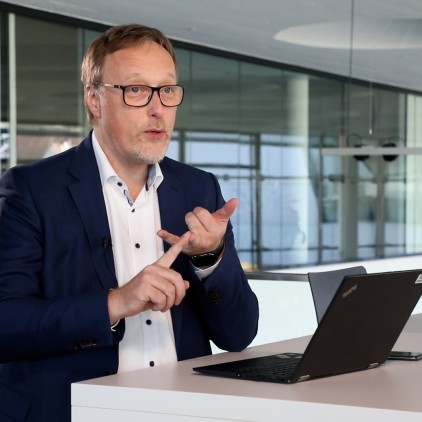Digitalization is a megatrend, including in the automotive industry. What does a Group like ZF expect from its digitalization initiative?
Digitalization is a megatrend, including in the automotive industry. What does a Group like ZF expect from its digitalization initiative?
Deist: Digitalization is not an end in itself for us, but a key to the strategic goals we set ourselves as a company. We want to make Next Generation Mobility possible. What does this mean specifically? People expect viable mobility that is electric, intelligent, connected, sustainable, safe and autonomous, while still affordable. And to do all this and offer the corresponding technologies worldwide, we must become a digital company. We need digital tools, digital processes, digital working methods.







